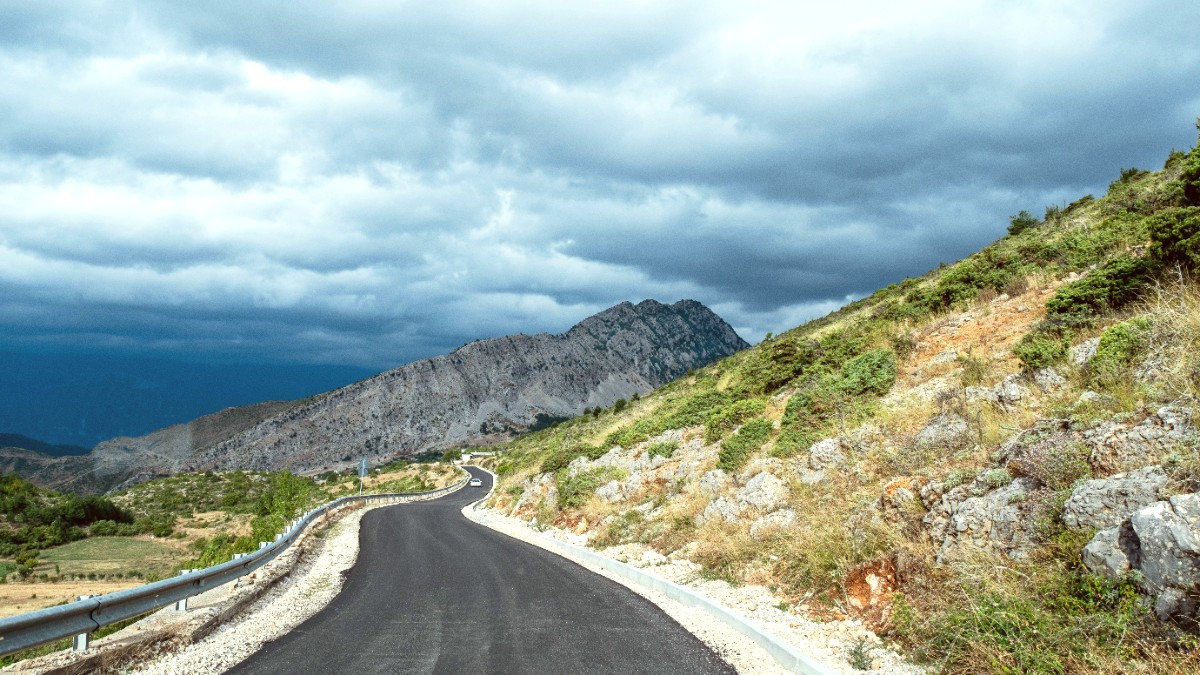
Albania
Olive oil is a cornerstone, used generously. Vegetables are abundant in salads and stuffed dishes. Lamb and goat are common meats, often slow-cooked. Fresh fish, octopus, squid, and mussels (notably from Butrint Lagoon) are Riviera highlights. Dairy items like feta-like white cheese and strained yogurt are frequent. Common herbs include oregano, mint, parsley, and dill, contributing to savory flavors balanced with lemon, tomatoes, and olive oil.
Strong Greek influence, with emphasis on grilled seafood, Greek salads, moussaka, and souvlaki. Mussels from Butrint are a specialty.
A mix of Greek and traditional Albanian dishes. Expect abundant use of olive oil, local mountain herbs, and fresh fish.
Focuses more on traditional Albanian dishes, with an emphasis on meat and vegetable stews, alongside Adriatic seafood.
Tavë Kosi is Albania's national dish: baked lamb and rice with a savory yogurt-egg sauce. Fërgesë Tirane is a thick stew or dip with peppers, tomatoes, onions, and cottage cheese or liver.
Widely available in traditional Albanian restaurants.
Karkaleca Deti (shrimp) are fresh, often grilled. Oktapod në Zgarë (grilled octopus) is a Riviera specialty. Midhje (mussels), especially from Butrint Lagoon, are a local delicacy, often steamed.
Enjoy grilled fish (Peshk në Zgarë) fresh from the catch of the day.
Byrek is a flaky pastry with various fillings (cheese, spinach, meat, pumpkin). Speca me Gjizë are bell peppers stuffed with rice and cottage cheese, a flavorful vegetarian option.
Byrek is an ubiquitous, satisfying snack found at bakeries.
Trileçe, a sponge cake soaked in three kinds of milk and topped with caramel, is very popular. Baklava, with layers of phyllo, nuts, and syrup, and Ashure (Noah's Pudding) are also available.
Byrek is a versatile street food. Souvlaki/Gyros (especially in the south due to Greek influence) and Kremvurgje (Albanian hot dogs) are also popular. Petulla are fried dough fritters.
Limited but growing, especially in Dhermi and upscale Sarandë. Focus on modern Albanian and Mediterranean cuisine with fresh seafood and quality ingredients. Reservations are recommended in high season.
The most common dining option, providing great value. Offer a wide variety of traditional Albanian, Mediterranean, and Italian dishes.
For affordable options, explore bakeries (Byrektore), fast food stalls, and local markets for fresh produce and snacks.
Many traditional dishes are naturally vegetarian: salads, stuffed vegetables, baked beans (fasule pllaqi), Fërgesë (without liver), and some byrek.
Always specify "pa mish" (without meat).
Dairy and eggs are common. Focus on salads, grilled vegetables, bean dishes, rice, and fresh fruits.
Clearly state "pa mish, pa djathë, pa vezë, pa qumësht" (without meat, cheese, eggs, milk).
Often available, especially chicken/lamb, though not always certified. Albania is a majority Muslim country.
Extremely limited or non-existent in most areas.
Challenging as bread is a staple. Stick to naturally GF foods: grilled meats/fish, salads, rice, plain vegetables.
Menus rarely list allergens. Inform staff directly about severe allergies or use a translation app.
Visits to olive oil mills or local farms may be possible, notably in areas like Borsh or Himarë, through local contacts or specialized tours.
Experience direct from producer insights.
Butrint Mussels farms near Sarandë offer fresh mussel tasting experiences directly at the source.
Taste mussels from their origin.
Italian cuisine, including pizza and pasta, is widely available and popular due to historical ties. Greek cuisine has a strong presence in the southern Riviera, especially in Sarandë and Ksamil.
Limited options for other international cuisines, like Chinese or Turkish, may be found in larger cities.
Formal cooking workshops for tourists are limited on the Riviera. Some guesthouses might offer informal cooking demonstrations.
Inland cities like Gjirokastër or Berat may offer more traditional craft workshops, like wood carving or textiles.
Some smaller, family-run restaurants informally demonstrate how they use ingredients directly from their own gardens or local farms.
These initiatives are still developing. Some guesthouses in smaller villages offer a glimpse into local life. Opportunities exist to support local farmers or artisans.
Engage with local life.
No formal short-term language courses specifically for tourists. Learning a few basic Albanian phrases is highly appreciated by locals.
A few words make a difference.
In less popular areas, these offer an authentic experience beyond tourist traps. Enjoy simple meals and local coffee.
Look for seasonal or unique street food offerings beyond the usual, often at local markets or small family stands.
Many guesthouses (Bujtina) offer home-cooked meals for their guests, providing a truly authentic taste of Albanian home cooking.
Always carry some cash, as smaller establishments may not accept cards. Tipping is appreciated, generally rounding up the bill or leaving 5-10% for good service.